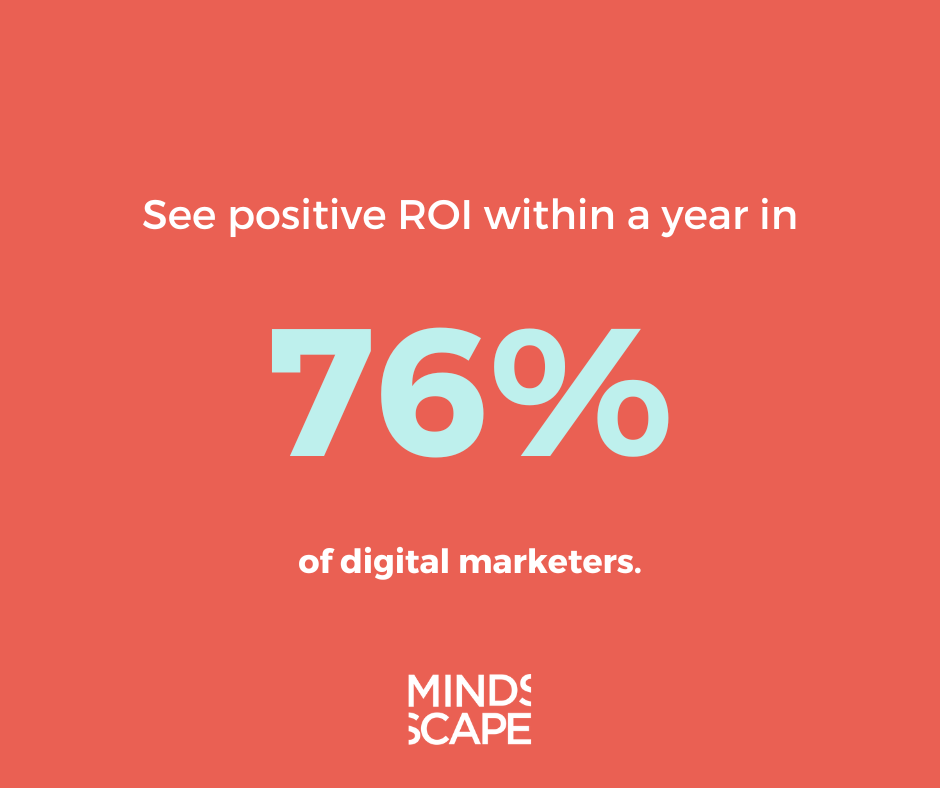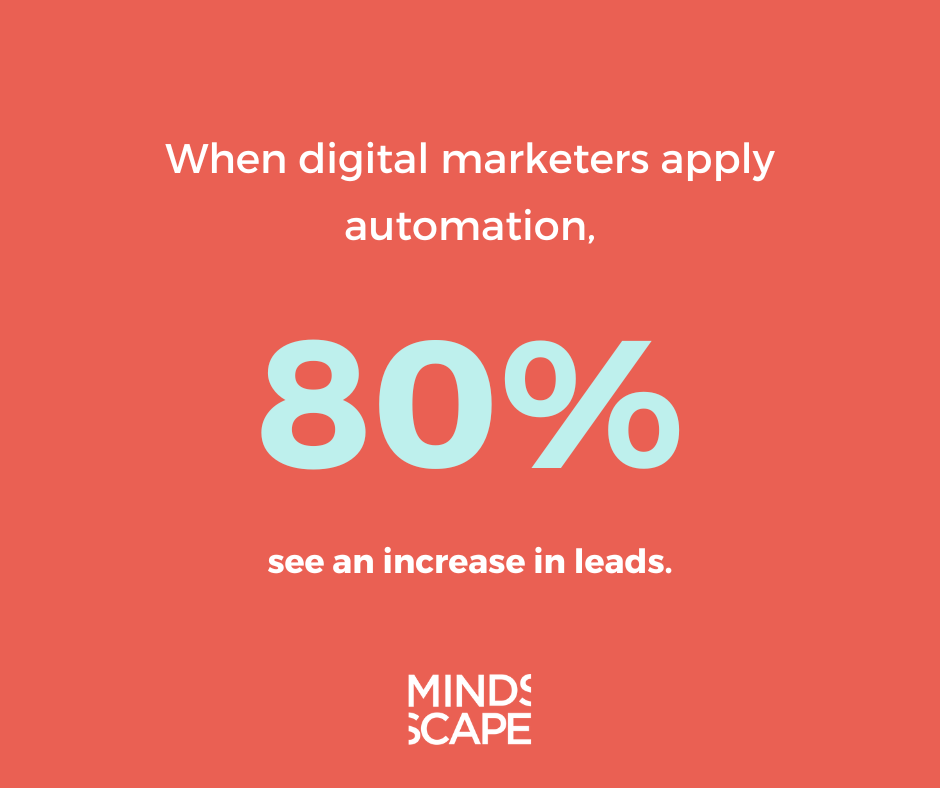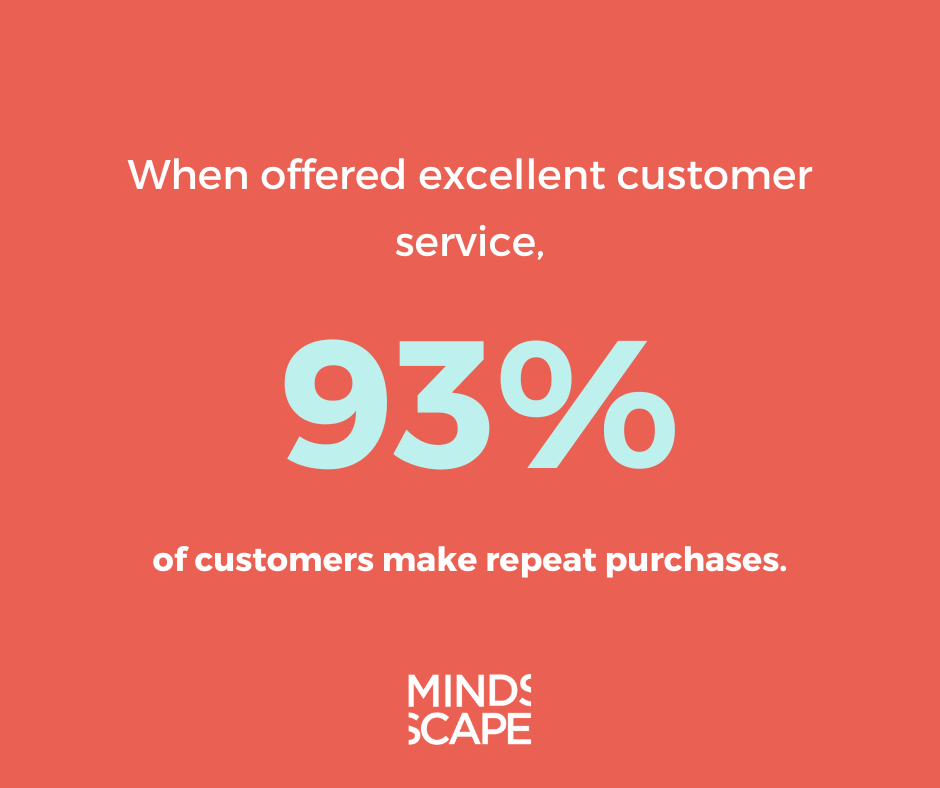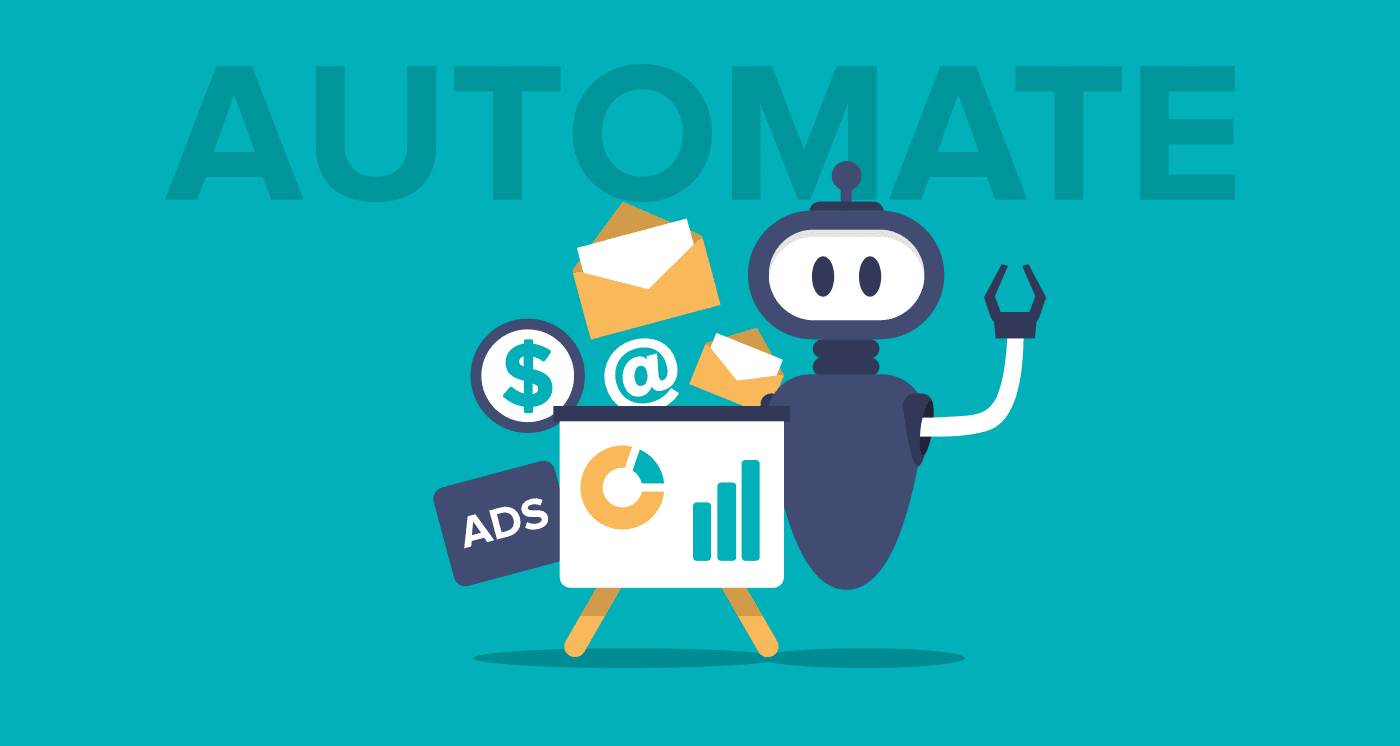Automation in marketing is certainly not a new or unknown tool to the industry, but there’s no reason to feel like your business has missed its window to seize on this popular and effective strategy. 75% of companies are already using at least one kind of marketing automation tool. If you’ll allow us the opportunity, MINDSCAPE experts have plenty of reasons your business should lean more heavily into marketing automation.
What is marketing automation?
Marketing automation is the use of software to automate actions such as sending emails, updating lead statuses and lifecycle stages, sending internal notifications, creating sales deals, and more. It doesn’t just improve efficiency, but can also provide a more personalized experience for customers.
Why should you use marketing automation?
Today’s buyers have unlimited choices. This makes it difficult to retain customers and gain the trust of new ones. The relationship your business has with a customer and the customer experience you provide is often the final deciding factor for a purchase. This means every piece of communication you send becomes a critical touchpoint. As a result, your business’s most important communication often comes in the form of transactional emails like order confirmations and billing notifications. So when your business is sending out sales and marketing messages to create and nurture customer relationships, it is crucial to unify this communication with your transactional communication to create a cohesive experience across your brand.
Marketing automation is the perfect tool for creating this unified message since you can automate the majority of messaging to ensure it is consistent.
When implementing automation, 76% of marketers see positive ROI within a year. The main appeal of automation is right in the name – it happens automatically. After a one-time investment, your automation will continue to produce results for years to come by saving you time and reducing costs as a result. Maintaining content to keep things current is all you need to do, and it’s never been easier to maintain with today’s tools. Let’s take a look at 6 ways automation can help you grow and scale your business.

1. Collect Better Data
Marketing automation is usually done via a CRM (or customer relationship management software). We’ll talk more about CRM’s later, but the thing to note now is that CRM’s store all of your contact’s data. From form fields they’ve filled out, to pages of your website they’ve visited, to emails they’ve opened — a good CRM records it all.
With this data in hand, you can provide your prospects with a better experience and produce better performing sales, marketing, and service materials.
For instance, let’s say you run an e-Commerce website. The average cart abandonment rate for e-Commerce sites is just under 70%, and your website is no different. You need to convince users to return to their carts and make a purchase. How do you go about this?
If you know the users contact information, you could automate an email send based on the item they added to their cart. “Hey Mr. Buyer, it looks like you left something cool behind.” The email could populate with an image of the item they added to their cart and have a call-to-action encouraging them to make the purchase.
Based on whether or not they made a purchase after your first email, you could automate another email send offering them a 10% discount on the item. If they still don’t buy, you can send them promotional emails based on their purchase history, page visits, or items in their cart.
And it doesn’t have to end there. You can create any number of workflows to send out promotional materials and increase your close rate. None of this would be possible without access to the contacts data.
2. Nurture, Segment, and Qualify Leads
The majority of the customer journey takes place after a buyer becomes a lead. Yet so many businesses have no way of nurturing, segmenting, or qualifying their leads.
With marketing automation, you can send out email campaigns, text messages, and other marketing materials based on how the user converted, the products or services they are interested in, what their lifecycle stage is, or any other information you may know about them.
This can help you move users through their buying journey and take them from someone who has a passing interest in your brand to someone who is ready to buy from your brand.
You can also segment your leads to make it easier to send out relevant information to large groups of contacts at a time. For example, let’s say you’re the marketing director of a spa and you have a form on your website asking users what services they are interested in. You can automate list creation based on your contacts’ responses so that you know who is interested in facials, who is interested in massages, who is interested in manicures, etc.
That way, if you have valuable information about a specific service, you can send it to the appropriate contacts with almost no effort.
Lastly, you can automatically update a contact’s lifecycle stage based on their behavior or information you know about them. This will allow your marketing and sales teams to prioritize their outreach and give priority to engaged contacts who are more qualified to buy.
80% of marketers report an increase in leads due to automation and 77% of companies report an increase in conversions due to automation, increasing conversion rates by a strong 15-20% overall. Numbers don’t lie, marketing automation is the place to be.

3. Reduce Costs
When simple tasks such as sending out marketing materials, following up with a lead, or scheduling a meeting with a sales prospect are all automated, your marketing and sales departments can effectively do their jobs with fewer team members.
Additionally, automation ensures that leads are appropriately nurtured, sales prospects are followed up with, and service tickets are addressed in a timely manner. All of these things contribute to your business delivering a better experience and closing more sales while reducing costs.
4. Increase Efficiency
No matter how fast you or your employees may be, you can’t match the speed of marketing automation — it’s automatic. With marketing, sales, and service information being sent out immediately after a contact takes a specific action, you’ll be operating at 100% efficiency for those actions.
But this isn’t the only way marketing automation increases efficiency. Since many of your processes won’t require human interaction, employees can focus on other parts of their jobs such as asset creation. They’ll be able to produce more and at a faster rate.
5. Personalize the Customer Journey
Providing your customers with an experience that feels customized and tailored to their desires should be your ultimate goal. As we discussed in the data collection section of this post, a good CRM allows you to collect all kinds of user data. This, in turn, allows you to provide your users with content that has been personalized completely for them.
You can have emails populate with products your user has viewed the past, or services they’ve said they are interested in. You can send them more information on a subject based on pages of your website they have viewed. You can populate emails with their name and other personal information to make the email feel unique.
You may not have the human resources to make send a personal email or make a direct phone call to every contact, but with personalization you don’t have to. You can make every interaction feel personal.

6. Improve Customer Service
93% of customers are likely to make repeat purchases with companies who offer excellent customer service and marketing automation tools are the perfect answer to many customer service problems.
They are fast, efficient, and automatic to get help to an unsatisfied customer as quickly as possible. If something does unfortunately go wrong and you lose a customer, your business will know exactly where along the way you lost them to improve for next time.
So what does implementing automation in marketing actually look like?
The most common way companies set up automation is working with a CRM (Contact Relationship Manager). The most popular CRM, and the one we most recommend to growing businesses at MINDSCAPE, is HubSpot. They are constantly updating their software and have some of the most intuitive tools on the market. With HubSpot, you can set up dynamic email campaigns, schedule social media posts with automatic analytics, set up workflows, manage your contacts and leads, and so much more in one place.
Want to get started with marketing automation?
We offer a wide variety of automation services including HubSpot set-up and training. If you are interested in learning more, you can head over to our CRM & Automation page.





